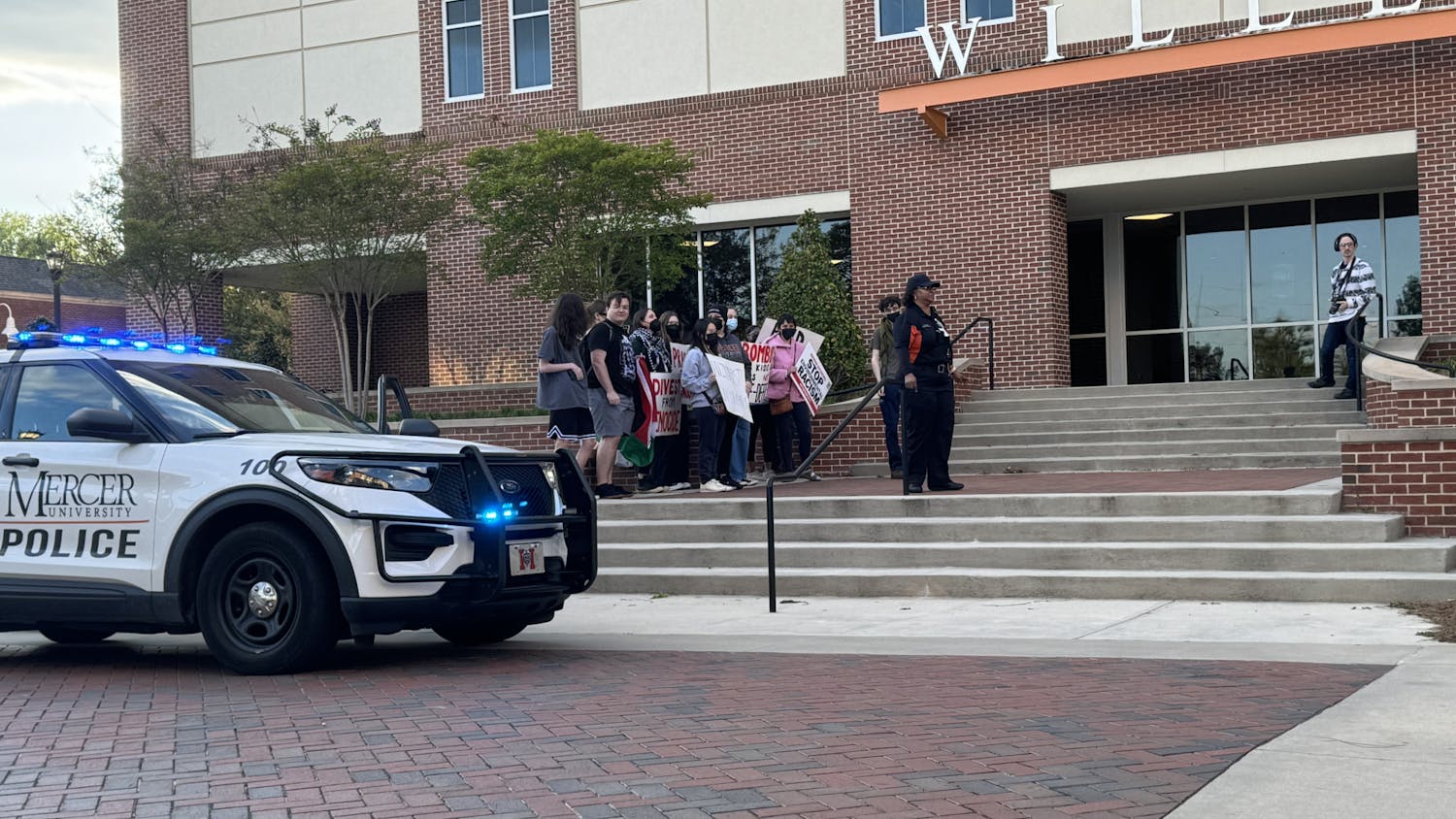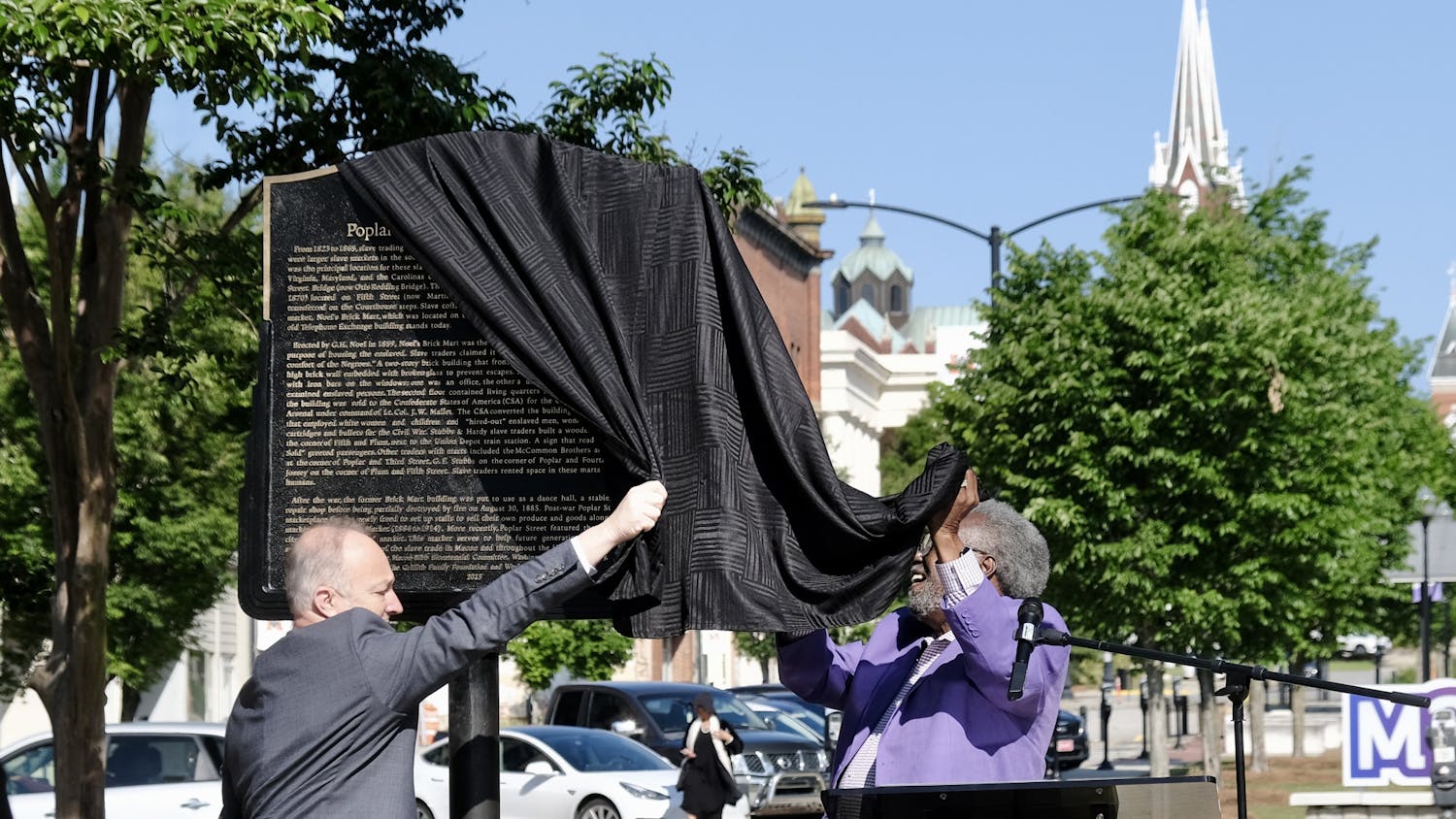With about 4,700 currently enrolled undergraduate students at Mercer University, on-campus housing is nearing a full capacity between the different residence halls and lofts.
“We are full. We’re real full,” said Jeff Takac, the Director of Housing at Mercer University. “We’re probably 97 percent occupancy. It’s a good year.”
There are 2,550 spaces in total for on-campus housing between the lofts and residence halls, according to Takac. Between these two, 1,950 of those spaces are in residence halls and 600 are in the lofts.
According to a recent census done by housing, 1,887 (97 percent) of the residence hall spaces are taken and 593 (99 percent) of the loft spaces are taken.
“Obviously, you’d like to operate at 100 percent because that’s always good financially and everything else,” Takac said. “You want to be above 95 percent if at all possible. I’ve been here 14 years, we’ve been above 95 percent occupancy all the time, which is a good thing. Even when enrollment fluctuates, housing has always been pretty full.”
Enrollment in the past five years has increased by a total of about 300 students, and housing has also increased with the building of new lofts and of Legacy Hall, which itself added 300 beds for freshman housing.
Despite the growing student body and there being more enrolled students than there is housing, Takac did not express any concern for housing the large number of students.
“We don’t have a lot of students that can’t get housing,” Takac said. “Usually, if they want housing, we’re able to house them. But it’s maybe not their first choice. But we can get them in.”
The 1,950 spaces in residence halls break down very simply.
According to Takac, Legacy Hall can house up to 300 freshmen, and Boone, Dowell and Porter together can also house up to 300 freshmen.
Roberts Hall can hold up to 80 freshmen and sophomores, Sherwood Hall can hold about 124 sophomores and Shorter can hold about 130-135 sophomores.
Adam’s Winship and the Garden apartments can each house up to 220 residents each, most of which are juniors. Mercer Hall can house up to 200 juniors, and Greek housing can hold up to 150 students in Greek life. There are also 32 units in the Orange Street apartments, though those are mostly house graduate students.
Some students expressed issues with the three-year housing requirement, which requires Mercer students to live in on-campus housing until their senior years. However, Takac said that establishing a sense of community is a very important part of housing at Mercer.
“I think most universities will tell you it creates a better environment on campus,” Takac said. “I think that students do better, their GPAs are higher. There’s a lot of statistics if you look at why it’s better to stay on campus.”
Takac said that when the majority of students live on campus, it creates a better on-campus environment. This environment also includes an active student community that is more likely to get involved in various activities on campus.
Takac said that there was even a desire from almost 500 seniors that wanted to live on campus this year.
He said that when he first came to Mercer 14 years ago, Mercer was considered a “suitcase college” because there was nothing to do and students would just leave on the weekends.
“I don’t feel like people believe that at all anymore,” he said.
Looking to the future, Takac said that Mercer is looking to update housing and attempt to make most housing nicer like the new Legacy Hall.
“What we’re trying to do is update some of our older residence halls,” TaKac said. “We’ve done some things with our lobbies to update them. We put some new furniture in, and we’ve added some games.”
Mercer Housing looks to foster a sense of community along with continued growth

Avery Davis, junior (middle), and Amina Mohamed, sophomore (right), help Justin Hanson, senior (left) buy a pastry for RHA Greekments' Pastries for Pancreatic Cancer outside Stetson Hall on Nov. 7, 2017.




